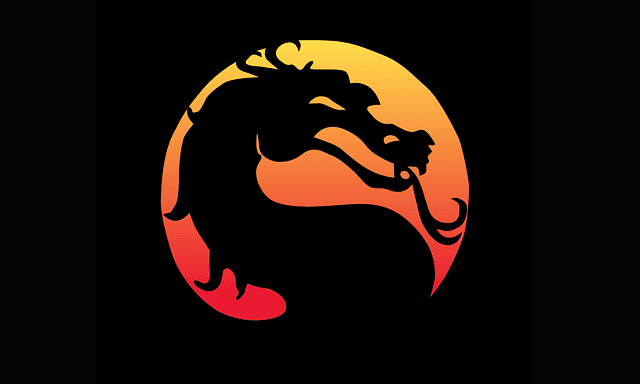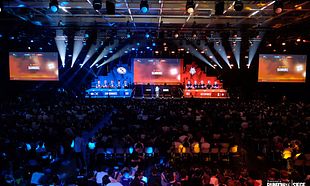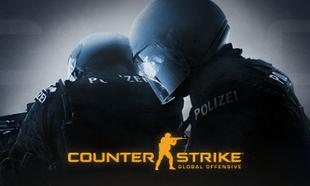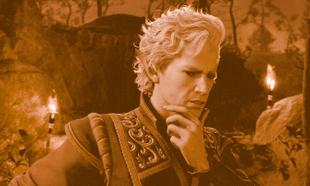'Mortal Kombat', as a gaming franchise, is one that's known peaks and valleys over the years.
While its current iteration may be blessed with 4K graphics, characters from classic movies like 'Robocop' and 'Predator', and online esports, there's been more than a few entries that have aged like milk, and some more that weren't even all that much to begin with.
For this ranking, we're keeping it strictly to the main entries in the franchise and excluding the spin-offs, such as 'Mortal Kombat Mythologies: Sub-Zero', 'Mortal Kombat: Shaolin Monks', and 'Mortal Kombat: Special Forces'.
We start with the worst of the very worst...
'Mortal Kombat 4'
Even at the time of its release, 'Mortal Kombat 4' was a poor game. Yes, it was innovative in that it was one of the first games in the franchise to use 3D graphics and it has a special place as the final 'Mortal Kombat' game to be made for arcade cabinets. All that aside, there's very little in the game that warrants mentioning positively. In fact, the console porting for 'Mortal Kombat 4' was so poor that the endings basically become a part of early internet meme culture. Just take a look at this.
'Mortal Kombat: Armageddon'
Despite it coming with a Kreate-A-Fighter mode and the 'Motor Kombat' minigame, 'Armageddon' felt like it was firing everything at the screen and waiting to see what stuck and what didn't. That the franchise effectively got a major reboot with the next in-story game tells you that the wheels were beginning to come off the whole thing. Still, the fluidity of combos and the impressive character roster - 62 in total - keeps it as a memorable, if uneven, entry in the franchise.
'Mortal Kombat: Deception'
One of the issues that's been consistently levelled against thefranchise is that it's one game improved upon again and again. While it's not annualised in the way that football games are, each iteration of the game has improved itself in some way. 'Deception' was unique for its time in how it focused on online multiplayer, and at a time when it wasn't really at the stage it's at now. Although some of the character design is a little shoddy, bringing back classic characters like Sindel, Baraka, and Mileena was a nice touch.
'Mortal Kombat 3'
Although it was re-released two times - as 'Ultimate Mortal Kombat 3', and later, 'Mortal Kombat Trilogy' - you could tell with 'Mortal Kombat 3' that the screen-capture technology being utilised by Midway and Williams Entertainment was being pushed to its very limit. Still, the level of detail and the impressive range of characters keeps people coming back to it. That it mounted the larget marketing campaign for a fighting game tells you how much faith Midway had in it to be a success. In hindsight, the likes of the second game and the first game had a charm in their simplicity and cleanliness that this didn't have.
'Mortal Kombat vs. DC Universe'
Although it featured the likes of Batman, Superman, and was effectively a dry-run for 'Injustice', there were more than a few issues with 'Mortal Kombat vs. DC Universe'. For one, a lot of the characters seemed to be wildly overpowered, making for uneven playability online and in-person. On top of that, the game featured no real unlockable features, and compared to where 'Marvel vs. Capcom' went before it, bringing in DC characters wasn't all that innovative. Still, it had its moments and seeing the likes of Superman burn Sub-Zero to a crisp is pretty fun.
'Mortal Kombat 11'
Despite being the most recent entry in the franchise, it's a shame that 'Mortal Kombat 11' isn't up near the top like 'Mortal Kombat X' or the 2011 reboot for that matter. Why? For one, the game purposefully tried to slow the combat and get players to think differently and become more strategic. Noble, sure, but this is 'Mortal Kombat'. Unless you're of a skill, most people usually just bash a few buttons and hope for the best. '11' effectively turned itself into a fighting simulator rather than a beat-'em-up. That means that where you had mindless fun and violence, now you have something much more cerebral. It's a bold step, sure, but was it the right one?
'Mortal Kombat: Deadly Alliance'
By the time 'Deadly Alliance' arrived on consoles - the first time in the franchise a main game had been made solely for consoles, by the way - the 'Mortal Kombat' franchise was flagging. The two movies were panned critically and bombed financially. TV series based on the gaming franchise were axed. The first spin-off of the franchise, 'Mortal Kombat Mythologies', had been largely ignored by the gaming press. In steps 'Deadly Alliance', with a true 3D fighting format, characters redesigned from top to bottom, and fresh thinking in a franchise and a gaming genre that needed it.
'Mortal Kombat'
It's kind of hard to comprehend not just the excitement around 'Mortal Kombat' when it first released in 1992, but also the media panic. It, along with the PC game 'Night Trap', was directly responsible for the ESRB. The game had to be toned down for consoles, with a "blood mode" only accessible with a cheat. Original arcade cabinets still fetch a hefty price for collectors, some of them worth well into the thousands.
'Mortal Kombat X'
If there's one thing that the franchise has embraced in the current era, it's microtransactions. 'Mortal Kombat X' was leaden with them, and although the game was much cleaner, sharper, and focused than 2011's reboot, it lacked some of the heart of it. In fact, the game felt curiously shorter and pointedly missing in parts. Why? Because NetherRealm Studio wanted you to buy the DLC, or buy the upgraded 'XL' version a year or two later.
'Mortal Kombat' (2011)
'Mortal Kombat', as a franchise, is one that's truly replete with lore, backstory, subbplots and so forth. Most players ignore this in favour of button-mashing mayhem. The 2011 reboot, however, came with easily the best story mode in a fighting game we've ever seen. For players who've been on the journey since the '90s, it blended together the small parts they remembered with a compelling story that took its inspiration from the 2009 reboot of 'Star Trek' of all places. The fighting system was clean, precise, and made full use of every button on the controller in a way that previous entries couldn't.
More than that, it embraced its 2D side-scrolling root and represented a real return to form for the franchise. Was it a flawless victory? No, but it was as close to a perfect reboot as any gaming franchise has ever had.
'Mortal Kombat II'
When 'Mortal Kombat' first landed in arcades and on home consoles, people knew that this wasn't like anything they played before. It wasn't bright and colourful, it was dark and disturbing in a way that games weren't supposed to be. Where that began, 'Mortal Kombat II' escalated. It wasn't just in stepping up the violence, but rather in expanding the lore and the secrets. Who'd ever think of hiding Pong inside of a fighting game? And what about that guy that shouted 'Toasty!' whenever you landed an uppercut?
It's telling that John Boon and Ed Tobias were taking inspiration from 'Star Wars', as 'Mortal Kombat II' is 'The Empire Strikes Back' to the franchise. It didn't come with a happy ending, the central characters were in peril - Sonya and Kano being chained up on display in one stage - and it all just had a sense of foreboding about it that added to the atmosphere that this game was something forbidden. It captured everything about 'Mortal Kombat' that made it great, and continues to be among the finest fighting games ever made to this day.









































































